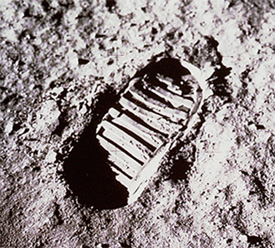An incredibly sad day
indeed – Neil Armstrong, the first man to set foot on the Moon has
died at the age of 82.
Although Armstrong did
a stint in the US Navy air force, seeing action in Korea, he actually
left the military to gain a degree in aeronautical engineering at college. He had a love of flying though, and ended up embarking on a career as a civilian test pilot. He was a different
mould to the Hollywood stereotype of the hot-headed test pilot, being
quiet and methodical due to his engineering background. Some test
pilots like Chuck Yeager felt such pilot-engineer testers got
themselves into more trouble because they would try to think their
way out of situations over follow their instincts, and in Chuck's
mindset trying to over think could lead to the kind of hesitency that a test
pilot could not afford.
He joined the NASA
space program as one of the few civilian test pilots. His first
space flight was Gemini 8 where his capsule performed a docking with
an unmanned Agena module. This was a world first.
However soon after
docking, something went wrong with the Agena, and the two linked
vehicles started to go into a spin, as the program controlling the
Agena thrusters seemed to react against the Gemini 8 command capsule.
Noticing they were burning fuel trying to correct this, the Gemini
pilots decided to disengage, however the Gemini 8 capulse then
started to tumble even fasted when removed. It was only due to some
steely decisions made by Armstrong that the pair did not black out,
and the Gemini 8 capsule was stabilised.
Some members of NASA
said that the Gemini 8 crew had compromised the mission by not
following the malfunction procedures for such an instance. Despite
there being no such procedure for this eventuality. Armstrong being
a true tester just worked through the problem and found the best
solution he could for a situation no-one has anticipated.
It was his calm manner
and lack of ego which made him an ideal candidate to be the first man
on the Moon. He was a perfect choice – when he returned to the
Earth he didn't use his position to influence politics (despite being
asked to) and was careful in the choice of any company he chose to
endorse.
Of course he didn't get
to the Moon on his own, he got there as a figurehead of a team, from
the controllers at NASA to the guy on the assembly line. He always
spoke with great humility acknowledging those whose input he always
wanted us to remember.
He may have been the
first man to set foot on the Moon, but he was also in many ways one
of us, a tester – although one who would put his life on the line
in his pursuit of testing. He used his pilot and his engineering
skills in equal measure to probe for problems then investigate and
overcome them. He later served on the inquiry into the Space Shuttle
Challenger disaster.
The world cheered in
1969 when he stepped off of his lunar lander. It now must stand for
a moment in silence to mark his passing.
Godspeed Neil Armstrong
…
Mystery creates wonder
and wonder is the basis of man's desire to understand.
It suddenly struck me
that that tiny pea, pretty and blue, was the Earth. I put up my thumb
and shut one eye, and my thumb blotted out the planet Earth. I didn't
feel like a giant. I felt very, very small.
The important
achievement of Apollo was demonstrating that humanity is not forever
chained to this planet and our visions go rather further than that
and our opportunities are unlimited.
Well, I think we tried
very hard not to be overconfident, because when you get
overconfident, that's when something snaps up and bites you.
Here men from the
planet Earth first set foot upon the Moon. July 1969 AD. We came in
peace for all mankind.







No comments:
Post a Comment